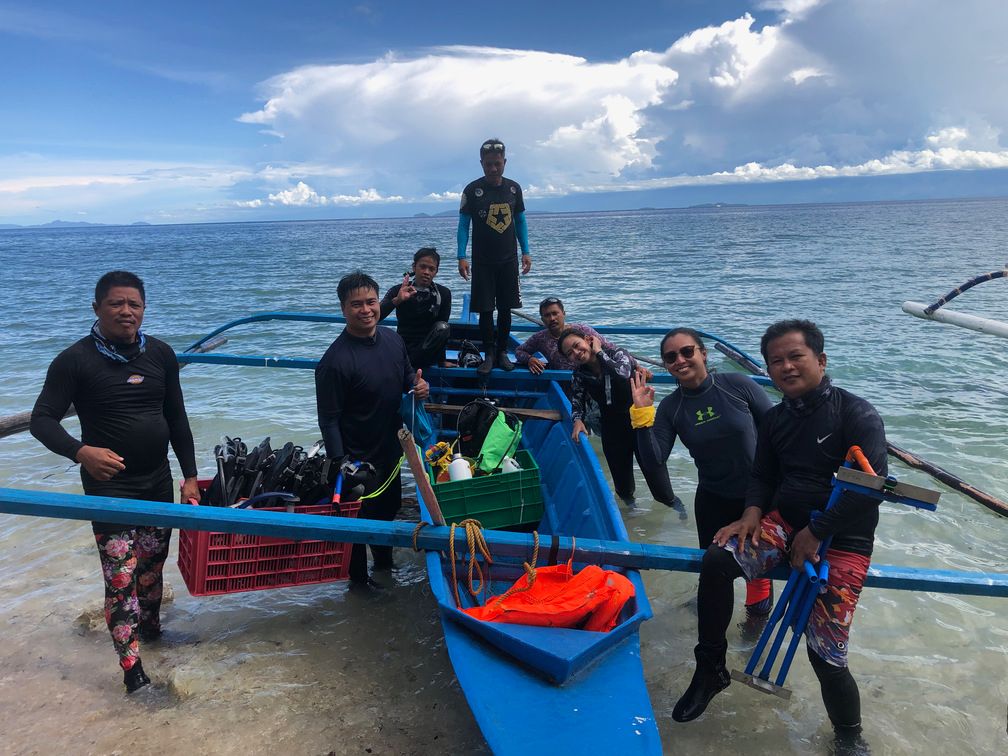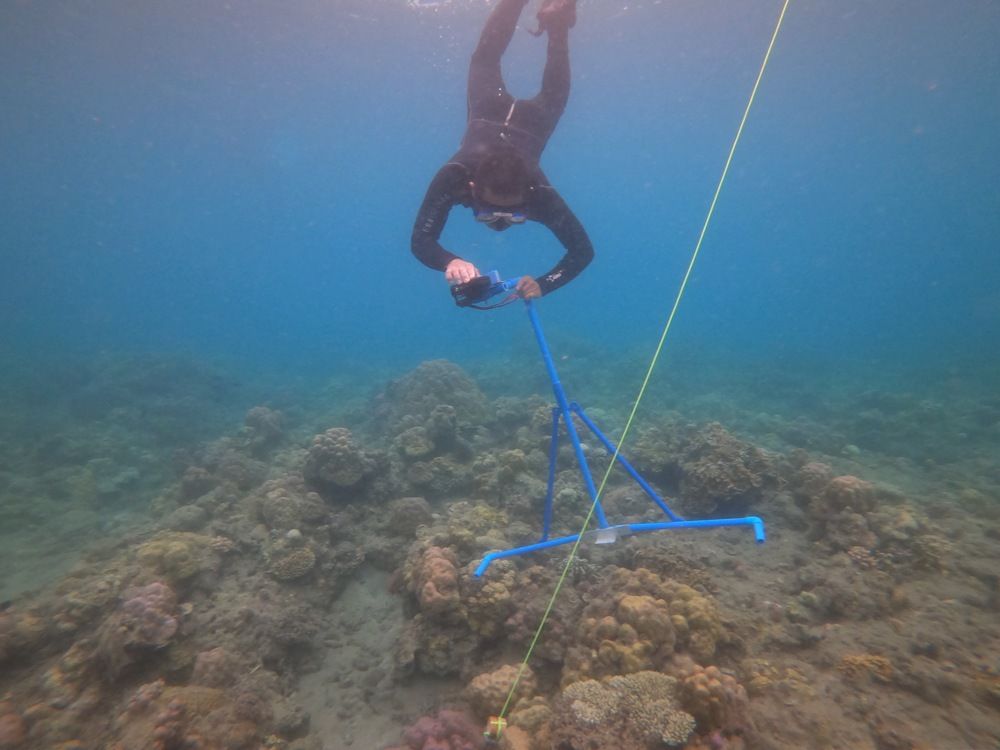First Gen, ABS-CBN Foundation mobilize citizen scientists to protect VIP marine ecosystem

Clean energy leader First Gen Corporation and nonprofit sister organization ABS-CBN Foundation, Inc. (AFI), have organized an 18-member team of citizen scientists in Lobo, Batangas, as an additional initiative in support of a long-term program, co-pioneered by both Lopez-led organizations, to help preserve the marine ecosystem in the Verde Island Passage (VIP).
First Gen and AFI have integrated the citizen scientist approach into the Lobo Reef Monitoring Program, a component of the wider Project Center of Center (Project COC) initiated 20 years ago by First Gen for VIP’s marine ecosystem protection.
Ramon J. Araneta, First Gen vice president for external affairs and security, explained that the citizen scientists act as force multipliers in monitoring and gathering valuable data in reefs near and around Lobo’s marine protected areas. The gathered data serve as inputs in drawing up effective and regenerative conservation measures and policies for the VIP.
In partnership with De La Salle University's Bro. Alfred Shields Ocean Research Center, citizen scientists helped develop ALWAN. A low-cost, coral reef monitoring method that is simple and easy to learn, ALWAN, allows coastal communities to collect timely information on the health of their coral reefs.
Araneta added that the citizen science approach empowers community members to be part of scientific expeditions; and with their help, data collection has become more frequent and extensive even without the presence of research professionals. “The volunteers not only bolster scientific research but also enhance the monitoring and management of the marine protected areas,” the First Gen official pointed out.
According to Araneta, the citizen scientists also help establish in Lobo restricted or no-access zones, which are designated to protect the ecosystem of the town being promoted at the same time as an ecotourism destination by First Gen and AFI.

The citizen scientists likewise provide valuable data about areas of concern, such as the potential impacts of climate change and local infrastructure development on water quality. These data enhance Lobo’s Coastal Resource Management Plan and support the town’s development programs.
Under the Lobo Reef Monitoring Program, the citizen scientists further help in identifying and delineating areas in Lobo suitable for recreational and tourism activities like scuba diving, snorkeling, kayaking, and swimming.
The citizen scientists, who are mainly local residents and Bantay Dagat members, underwent training in reef data collection, species identification and the use of specialized equipment. They also took freediving lessons and received freediving certifications as part of their training.
The citizen scientists have already gained the recognition and support of local government units and regulators, as well as some prominent foreign and local groups involved in promoting a sustainable environment.
For instance, the United States Agency for International Development (USAID), through a collaboration with AFI, has agreed to support the initiative by providing funds, equipment and training for the citizen scientists. Release of funds for the initiative has started and will continue until next year under USAID’s INSPIRE — Investing in Sustainability and Partnerships for Inclusive Growth and Regenerative Ecosystems — Project.
First Gen initiated Project COC in 2004 or the same year that an extensive study had identified the VIP as “the center of the center of marine shore fish biodiversity.” The authors in that same study warned that the marine ecosystem in the passage faced degradation from destructive fishing methods, rapid industrialization, and other problems.
Last month, First Gen and AFI reaffirmed their commitment to serve as VIP stewards by finalizing a memorandum of understanding (MOU) with the Department of Environment and Natural Resources and the Department of Energy. Under the MOU, both Lopez-led entities agreed, among other things, to harmonize efforts for the VIP’s protection with the country’s clean energy transition program.
First Gen owns and operates low-carbon natural gas-fired power plants with 2,017 megawatts in total capacity in Batangas City. It also owns and operates geothermal, hydro, wind and solar power plants with an additional capacity of 1,651.2 MW, making it the country’s largest renewable energy provider. The company’s use of clean and renewable energy sources, with a total of 3,668.2 MW in capacity, reflects the Lopez Group’s support for a clean environment, both on land and sea.
AFI, through its Science, Education and Advocacy (SEA) Institute, has been promoting a science-based conservation of the VIP, aside from providing critical information to policymakers and local government officials.
SEA Institute unites a diversity of stakeholders for their coordinated research, educational outreach, and conservation efforts of VIP. The synergy among the Project COC partners has helped educate and empower local communities about the importance of protecting the VIP from harmful practices, such as illegal fishing and quarrying.